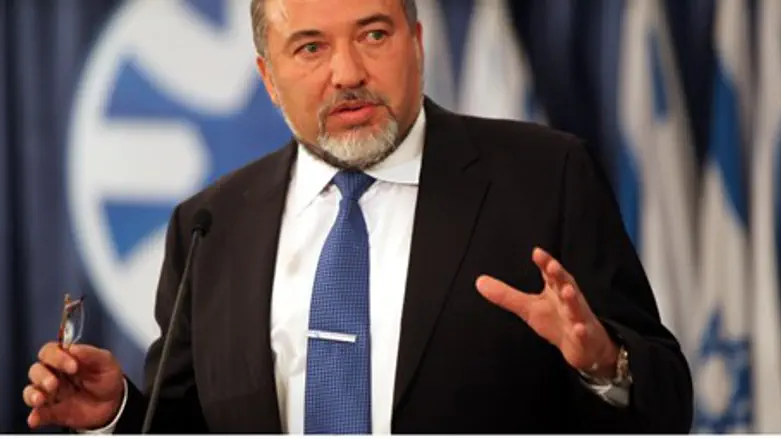
Israel’s power is rooted not just in its ability to strike but also in its ability to hold back when necessary, Foreign Minister Avigdor Lieberman said on Thursday.
"I am proud that we have a leadership that can make decisions even when they are contrary to its electoral interests," Lieberman told Channel 2 News about the decision to call a ceasefire in Gaza rather than choosing to launch a ground assault.
"It is obvious that a majority of the population was in favor of continuing the operation," Lieberman added, “but power is not only about hitting but also about holding back."
At the same time he expressed skepticism as to whether the ceasefire would last. "I definitely think it is not over and done with. We will have to topple the Hamas regime over time. However, under the current circumstances, we made the best decision [when opting for a ceasefire]."
Lieberman added, “We had many misgivings and not all of them can be shared with the public. This was not a strategic operation. We explicitly said that there are three goals: stopping the rocket fire, restoring deterrence and destroying Hamas’s stockpiles of long-range Fajr missiles. We achieved all those goals.”
Asked why Israel did not utilize Operation Pillar of Defense to topple Hamas, something Lieberman himself has called to do in the past, he answered, “We placed the issue of Gaza in the coalition agreement because we knew it was a problem that needs to be dealt with. Our advantage is definitely in the Air Force. Our weak spot is our value for human life. Entering Gaza means fighting from house to house in Khan Yunis, Gaza and Rafiah.”
“Eradicating Hamas will not take two or three months, not even four months,” said Lieberman. “At this time it was not appropriate to make decisions like that, so there was no misleading of the public. We did our best.”
Referring to the potential impact the ceasefire may have on the elections, Lieberman said, “The public knows exactly what I represent. In this case the right decision was made, even if it is not popular and against my electoral interests.”
A poll taken after the ceasefire was declared between Israel and Hamas found that the joint Likud-Yisrael Beytenu list has been severely weakened by the operation.
According to a Panels Institute poll carried out for the Knesset Channel, if elections were held today, Likud Beytenu would receive 33 seats – five less than a Panels poll gave it before the 8-day operation.
The Jewish Home / National Union party grows from 11 to 13 projected seats, while Michael Ben-Ari's Power to Israel goes from 3 to 4 seats.
Defense Minister Ehud Barak, in a separate Channel 2 interview on Thursday, was asked about the public's disappointment with the way the operation ended. He replied that it is the government and not the public that must make such decisions. "I remember situations in which 80% of the Israeli public supported a certain decision, and ten days later it turned out to be a very big failure," he added.
Defending the decision to stop the operation, he said: "The leadership has the appropriate tools. It is still not time to enter Gaza in a very wide operation and conquer it."
Barak said no one expected Hamas to "go down on its knees," and no one expected it to disappear in an operation that did not include the IDF entering Gaza. "Whoever dreams at night about the beach of Gaza and the alleys of Beit Lahiya has the right to do so," he added. "I do not miss these places. Only bringing Israeli rule back to Gaza will topple Hamas rule, but I am not sure that this would be wise."
Former Chief Military Rabbi Brig. Gen. Rabbi Avichai Ronsky called the ceasefire with Hamas "a huge failure."
Speaking with Arutz Sheva, he said, "You had tens of thousands of soldiers here, from the standing army and mostly the reserves, who left everything – the family, work – and came immediately, out of a strong desire to stop the immense chutzpah of the terror groups, which have started to get us used to having missiles fired at Jerusalem, Rishon Letzion and Tel Aviv.
"The ceasefire, in my eyes, is a great mistake and a disappointment to many."
